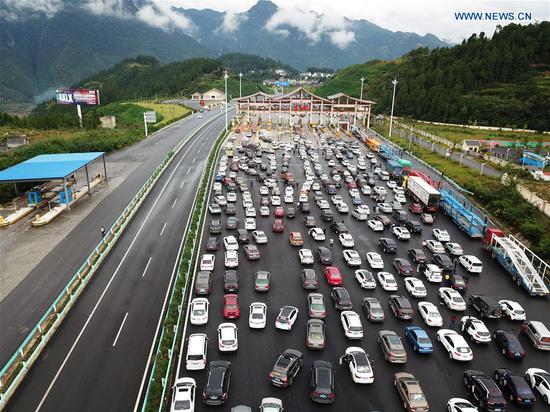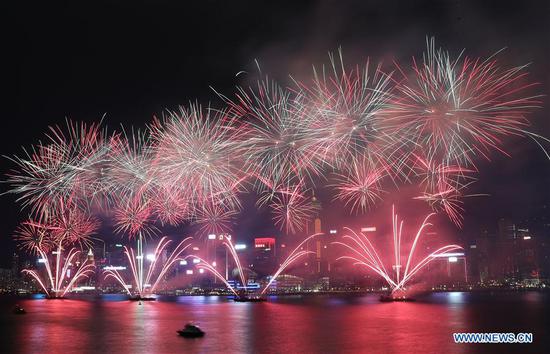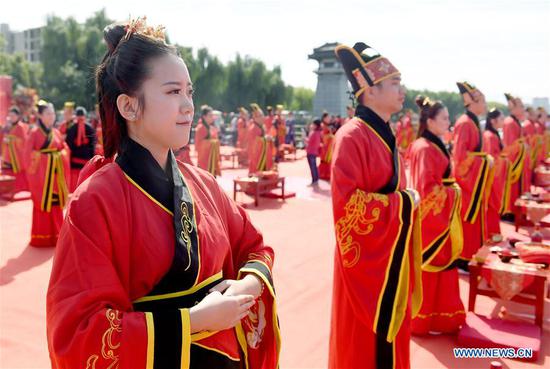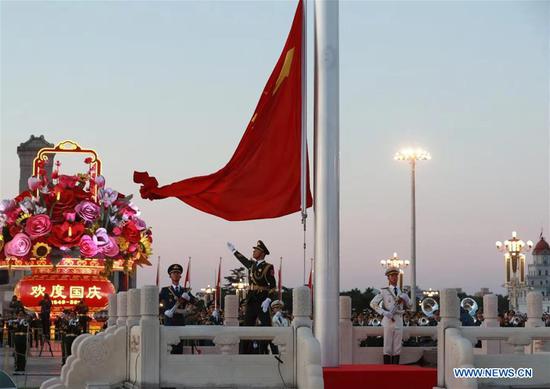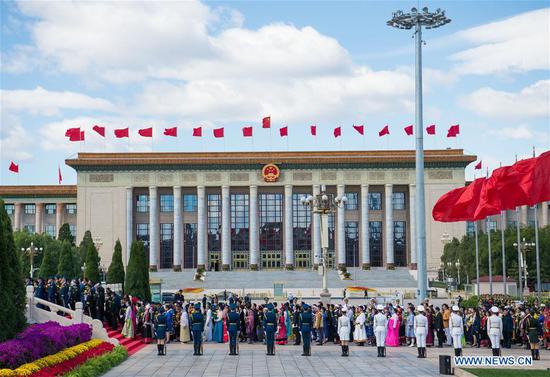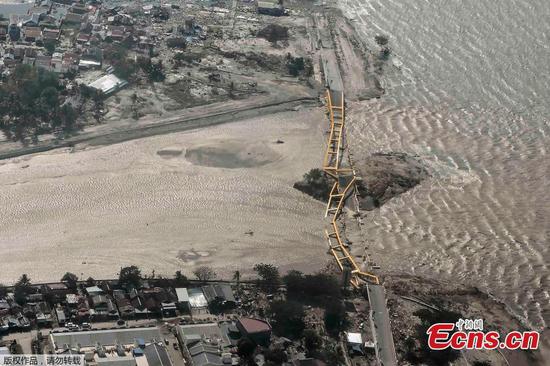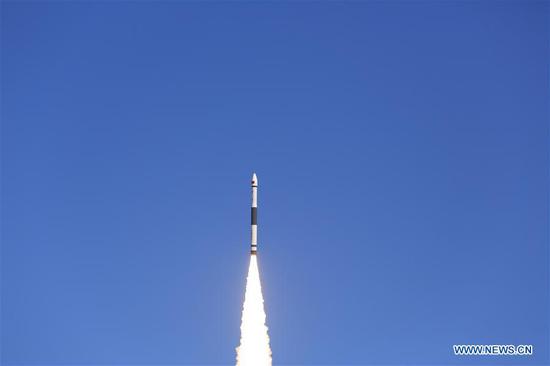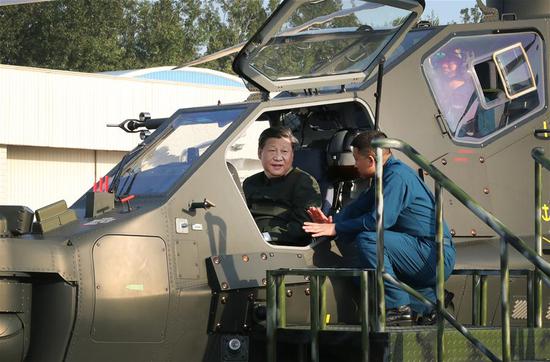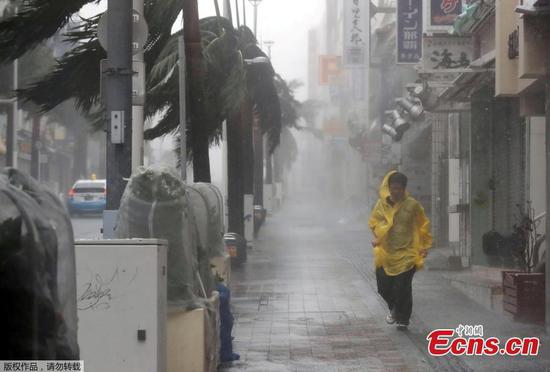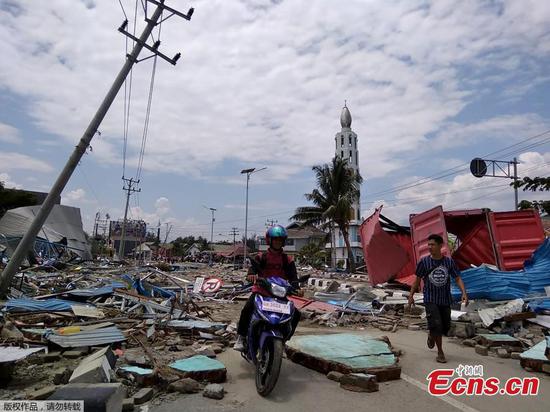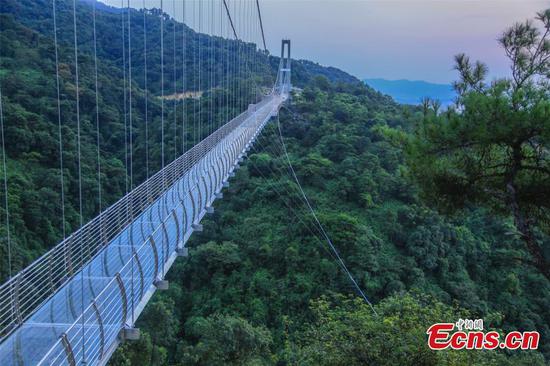The General Debate, a high-level week of the UN General Assembly, concluded on Monday after representatives of all 193 member states had spoken, with most of them voicing support to multilateralism.
To some extent, the forum was pretty much Donald Trump vs. the world. In his speech for which he was late, the U.S. president pit sovereignty against globalism.
"America is governed by Americans. We reject the ideology of globalism, and we embrace the doctrine of patriotism," he said.
"Around the world, responsible nations must defend against threats to sovereignty not just from global governance, but also from other, new forms of coercion and domination," he added.
Trump's words were immediately refuted by many world leaders.
French President Emmanuel Macron and British Prime Minister Theresa May said exactly the opposite.
"In no way will I yield the principle of the sovereignty of peoples to nationalists or to those in the international community who advocate retreating inwards, who want to use the sovereignty of peoples to attack the universality of our values," said Macron shortly after Trump's speech.
"I know that championing cooperation and multilateralism may no longer be in fashion. Then let's not be in fashion any more," he added.
May of Britain said, "We have seen what happens when the natural patriotism, which is a cornerstone of a healthy society, is warped into aggressive nationalism, exploiting fear and uncertainty to promote identity politics at home and belligerent confrontation abroad, while breaking rules and undermining institutions."
"And...delivering for your citizens at home does not have to be at the expense of global cooperation and the values, rules and ideals that underpin this," she said.
Iranian President Hassan Rouhani was more sarcastic. He indicated that the attack on multilateralism manifested one's intellectual inability.
"Confronting multilateralism is not a sign of strength. Rather, it is a symptom of the weakness of the intellect. It betrays an inability in understanding a complex and interconnected world," Rouhani said.
German Foreign Minister Heiko Maas and Dutch Prime Minister Mark Rutte taught Trump a lesson in philosophy.
"Europe has proved to the world that multilateralism and sovereignty are not a contradiction in terms," said Maas. "On the contrary, in a world faced with immense global problems, we can only safeguard sovereignty if we work together."
Rutte also said there is no conflict between multilateralism and the national interest. "I believe in constructive multilateralism. I believe in the power of principles and not the principles of power, to guide us toward a better future for more people."
Singaporean Foreign Minister Vivian Balakrishnan made his case by pointing out that without a rule-based world order, small states like his country will not be able to survive.
"Compliance with the agreed rules by all states is not only essential for global stability and the governing of the global commons, but is especially important to small states such as Singapore," he said. "Without the rule of law, the strong do what they will, and the weak suffer what they must."
Another hot topic at this year's General Debate was climate change. Many world leaders reaffirmed their commitments to containing global warming, in particular to the Paris Agreement, from which the Trump administration withdrew last year.
"It is an emergency. So let's comply with the commitments we've made," said Macron.
"Let's sign no more trade agreements with powers that don't respect the Paris Agreement. Let's ensure our trade commitments include our environmental and social obligations. Let's more heavily mobilize sovereign funds, which finance this low-carbon policy strategy," he said.
Appeals from small island states, whose very survival is threatened by global warming, were especially authentic.
"Put simply, climate change poses the single greatest threat especially to small island developing states like Samoa, not through our doing or choice, and that the need to take effective action to mitigate against climate change impacts is urgent and real," Samoan Prime Minister Tuilaepa Malielegaoi told the assembly.
"Its impacts are worsening by the day. No one country, or single group of nations, and no single organization can solely win the war against climate change. The divergent, yet inextricably linked interests of member states demands that we work together," he stressed.
UN Secretary-General Antonio Guterres raised the alarm of climate change at the beginning of the General Debate.
"We have reached a pivotal moment. If we do not change course in the next two years, we risk runaway climate change," he told the world leaders.
With the participation of 77 heads of state and 44 heads of government this year, the General Debate is by far the largest gathering of world leaders. But the disengagement of the United States, a key international player, will take its toll on the collective course of humanity.









